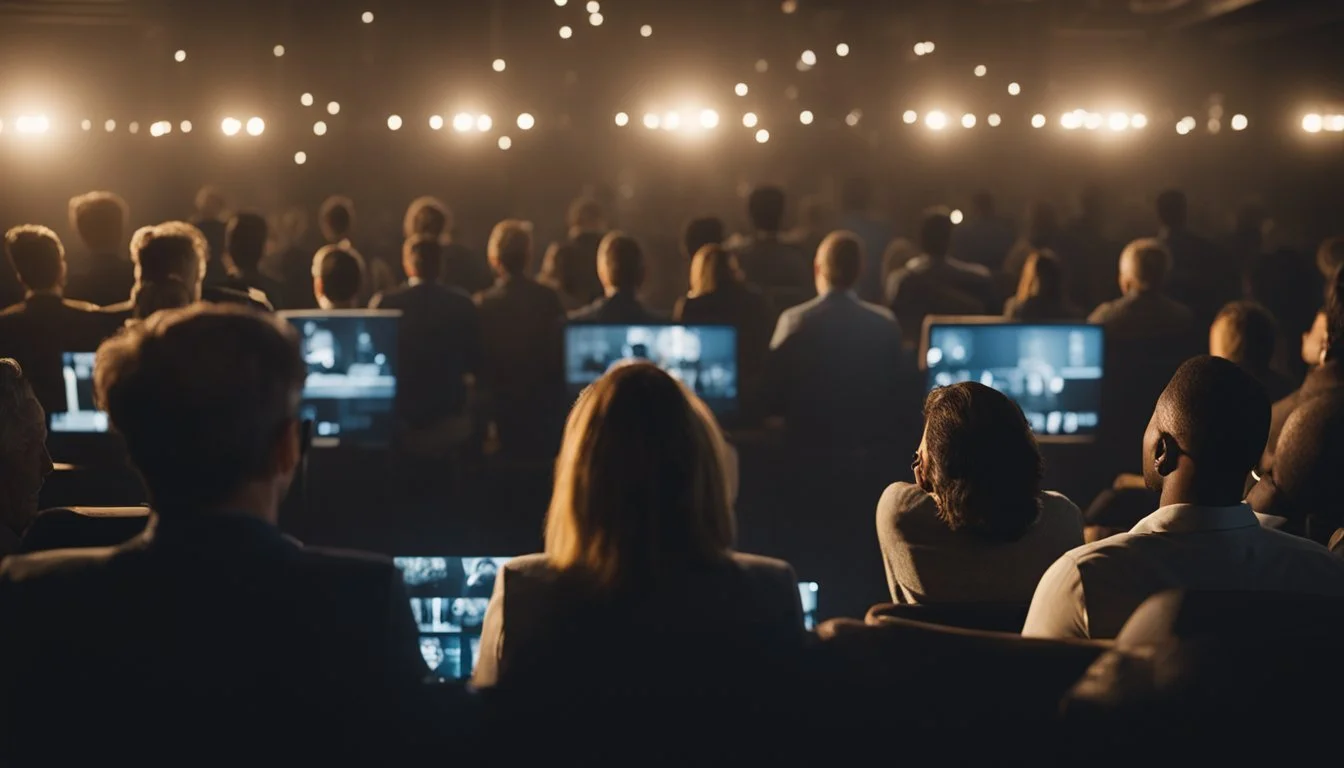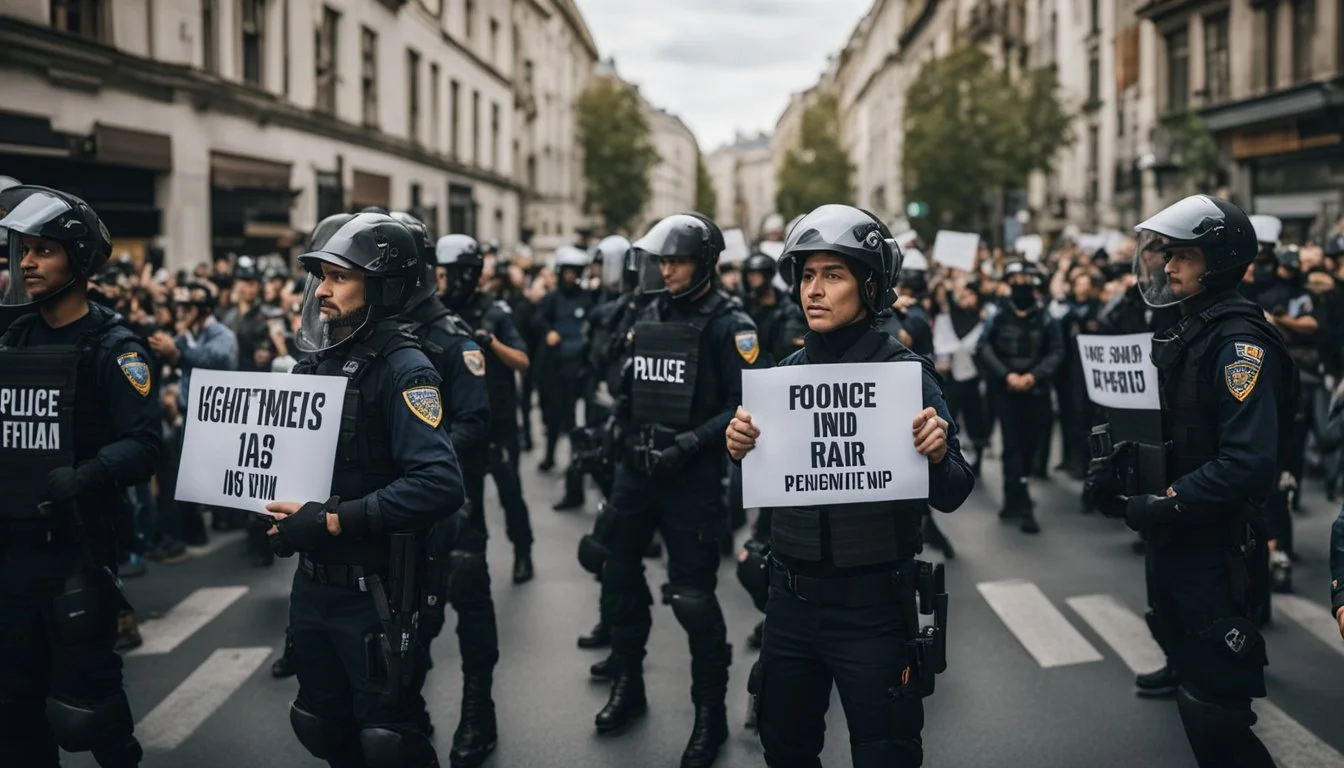10 Documentaries on Political Movements That Shaped History
Documentaries on political movements offer a deep and nuanced look into the forces that shape our world. Through the lens of filmmakers, viewers gain insights into the struggles and triumphs of various groups fighting for change. These films highlight the courage and determination of activists, shedding light on both historical events and ongoing issues.
What makes these documentaries invaluable is their ability to educate and inspire individuals about significant political movements. They serve as powerful tools for awareness, allowing audiences to understand the complexities of political landscapes across different periods and regions. By watching these documentaries, viewers can become more informed and possibly even motivated to engage in their own forms of activism.
1) 13th by Ava DuVernay (2016)
Ava DuVernay’s documentary, "13th," delves into the consequences of the Thirteenth Amendment. This amendment, which abolished slavery in 1865, includes a loophole allowing forced labor as punishment for crime.
The film explores how this loophole has perpetuated systemic racial injustice in the U.S., leading to mass incarceration, especially affecting African Americans.
Utilizing interviews and historical footage, "13th" analyzes the evolution of America's prison-industrial complex. It provides insights into how policies and laws have disproportionately targeted Black communities.
The documentary critically examines the intersection of race, justice, and the criminal justice system. It highlights the long-term impacts of criminalizing behaviors predominantly within minority communities.
For more information, visit Wikipedia.
2) The Square by Jehane Noujaim (2013)
"The Square," directed by Jehane Noujaim, offers an intense, on-the-ground look at Egypt's political unrest. The documentary focuses on the protests in Tahrir Square, which began in January 2011, challenging the rule of Hosni Mubarak.
The film depicts how the struggle evolved over time, capturing key moments and personalities. It includes diverse perspectives from participants like actor Khalid Abdalla, Muslim Brotherhood member Magdy Ashour, and singer Ramy Essam.
Noujaim's approach is both visually striking and emotionally gripping. Her ability to capture the unfolding revolution provides a raw and authentic portrayal of the events. Despite multiple awards, the ever-changing political landscape in Egypt drove Noujaim to continue filming even after initial releases.
This documentary gained critical acclaim, emphasizing the human aspect behind political movements. It not only records significant historical moments but also leaves a lasting impact on its audience by revealing personal stories within the larger political context.
For more information, see Wikipedia or IMDB.
3) Winter on Fire by Evgeny Afineevsky (2015)
"Winter on Fire: Ukraine's Fight for Freedom," directed by Evgeny Afineevsky, is a significant documentary that captures the intense 2013-2014 Euromaidan protests in Ukraine.
The film chronicles the massive mobilization of Ukrainians in response to their government's refusal to sign an agreement with the European Union. The participants demanded political change and the resignation of President Viktor Yanukovych.
The documentary features searing images and heartfelt testimonies from protesters. It portrays the unity and resilience of the Ukrainian people as they faced police violence and harsh winter conditions.
The film was Oscar-nominated and acclaimed for its raw and powerful depiction of a grassroots movement striving for democratic freedoms and human rights.
For more information, visit "Winter on Fire: Ukraine's Fight for Freedom" on Wikipedia.
4) The War You Don't See by John Pilger (2010)
John Pilger's documentary, The War You Don't See, provides a critical examination of how media and governments manipulate public opinion to justify wars.
The film scrutinizes the role of the media in conflicts, tracing the impact from World War One to contemporary wars.
The documentary includes insightful interviews with media historians, former CIA analysts, and journalists who have witnessed the consequences of war first-hand.
Pilger explores the concept of "embedded journalism," where reporters are attached to military units, potentially compromising their objectivity.
He delves into the hidden agendas and misinformation that often shape the narratives around conflicts like the war in Iraq.
The documentary not only highlights the failures of mainstream media but also encourages viewers to question and seek out independent sources of information.
For more information, visit IMDb.
5) Cameraperson by Kirsten Johnson (2016)
Kirsten Johnson's Cameraperson is an autobiographical documentary that captures a wide array of footage from Johnson's extensive career as a cinematographer.
The film features scenes from all over the world, providing a profound look at different cultures, conflicts, and personal moments.
This documentary uniquely blends Johnson's professional work with snippets of her personal life, creating a multifaceted narrative.
Audiences can see footage from important documentaries like Citizenfour and The Invisible War, illustrating Johnson's significant contributions to contemporary documentary filmmaking.
"Cameraperson" also presents intimate family moments, including footage of Johnson's mother, adding an emotional depth to the film.
For more information, visit the Wikipedia page.
6) Battle of Chile by Patricio Guzman (1975-1979)
The Battle of Chile is a seminal three-part documentary directed by Chilean filmmaker Patricio Guzman.
The film documents the political tension and upheaval in Chile in 1973, culminating in a violent military coup. It provides an on-the-ground look at the events leading up to the overthrow of President Salvador Allende.
The documentary is split into three parts: "The Insurrection of the Bourgeoisie" (1975), "The Coup d'état" (1976), and "Popular Power" (1979). Each part captures different facets of the political climate and the eventual coup.
The footage includes significant moments like the bombing of the Presidential Palace, where Allende died.
The Battle of Chile is widely praised for its comprehensive and unflinching portrayal of a critical period in Chile’s history.
More about the film can be found here.
7) The Panama Papers by Alex Winter (2018)
The documentary "The Panama Papers" by Alex Winter shines a light on one of the largest global corruption scandals in history.
Released in 2018, the film focuses on the work of hundreds of journalists who risked their lives to uncover the story. It examines the intricate web of offshore finance and its implications on world politics and economic inequality.
The film brings attention to the data leak from the Panamanian law firm Mossack Fonseca, which revealed how the elite and powerful used offshore accounts to hide billions of dollars. Notable figures implicated include world leaders and influential business people.
Alex Winter, known for his insightful documentaries, collaborated with prominent producers and journalists to create this impactful feature.
For more information about the film, see IMDb
8) One Child Nation by Nanfu Wang (2019)
One Child Nation by Nanfu Wang explores the consequences of China’s one-child policy, in effect from 1979 to 2015. This documentary sheds light on a significant political movement that impacted countless lives.
Through various interviews, filmmakers Wang and Jialing Zhang reveal the harsh realities faced by families. They speak with former village chiefs, state officials, and others involved in implementing the policy.
The film also features personal stories, highlighting the emotional and psychological toll. Wang's own history and upbringing in China offer a poignant perspective on this controversial policy.
This compelling documentary won the Grand Jury Prize at Sundance. It is praised for its fearless and honest examination of a painful chapter in China’s history.
For more information, visit Wikipedia.
9) The Act of Killing by Joshua Oppenheimer (2012)
Joshua Oppenheimer directed an experimental documentary titled "The Act of Killing" in 2012. The film takes a deep look at the Indonesian mass killings of 1965-66. Instead of focusing on the victims, it turns the lens towards the perpetrators of the violence.
The film is distinctive for its approach as it allows the killers to reenact their crimes in their preferred cinematic genres, such as noir, musical, and western. This method exposes their lack of remorse and offers a haunting insight into their psyche.
Oppenheimer spent years collecting footage, which eventually built up to a gripping narrative. The blending of different materials and registers gives the documentary a unique structure that pushes the boundaries of conventional documentary filmmaking.
"The Act of Killing" has been praised for its daring narrative technique and its ability to confront the audience with uncomfortable truths about history and human nature. This documentary stands out as a significant work in exploring themes of violence, memory, and impunity.
For more information on the film, visit Wikipedia.
10) Knock Down the House by Rachel Lears (2019)
"Knock Down the House" is a 2019 American documentary that follows the congressional primary campaigns of four progressive Democrats. These women—Alexandria Ocasio-Cortez, Amy Vilela, Cori Bush, and Paula Jean Swearengin—were newcomers who aimed to challenge established incumbents.
Directed by Rachel Lears, the film highlights the grassroots activism and community organizing at the heart of their campaigns. Each candidate faced significant challenges, both personally and politically, as they sought to bring change to the political landscape.
The documentary zeroes in on Alexandria Ocasio-Cortez's remarkable rise from a bartender to a congresswoman. Her story is one of perseverance and determination, showing how unexpected figures can create substantial political shifts.
"Knock Down the House" has received praise for its emotional impact and its ability to capture authentic moments of hope and struggle. It premiered at the 2019 Sundance Film Festival and went on to stream on Netflix, reaching a wide audience.
For more details, visit Wikipedia.
The Role of Documentaries in Political Discourse
Documentaries have a profound impact on shaping public opinion and providing historical context to political movements. They function as both educational tools and catalysts for social change.
Impact on Public Opinion
Documentaries can significantly influence how the public perceives political issues. By highlighting underreported events or offering new perspectives on well-known topics, they can sway public attitudes and promote critical discussions. American Factory (2019), for example, provides insight into the complexities of globalization, affecting viewers' opinions on labor and economic policies.
Visual storytelling engages audiences emotionally, making complex political subjects more accessible. Films like Growing Up Female have shifted societal attitudes by putting a human face on abstract political ideas, encouraging empathy and understanding.
Historical Context and Significance
Documentaries serve as vital records of political movements, preserving moments that might otherwise be forgotten. Archival footage, interviews, and firsthand accounts provide a rich tapestry of historical details. This not only educates current generations but also preserves the collective memory of past political struggles.
For example, political TV documentaries in China blend socio-political narratives with historical references, illustrating how governance changes over time. Such films allow viewers to understand the roots and evolution of political ideologies, adding depth to their interpretation of current events.
By documenting these movements, filmmakers ensure that the lessons learned are not lost to history, offering a comprehensive look at the forces that shaped societies.
Themes Explored in Political Documentaries
Political documentaries often examine intricate themes such as social justice movements and revolutionary political change. These themes provide a lens through which viewers can understand the complexity of political dynamics and their impact on society.
Social Justice Movements
Documentaries focusing on social justice movements often delve into the fight against systemic inequalities. These films highlight the struggles and victories of marginalized groups seeking equitable treatment and human rights.
For example, films about the Black Panther movement shed light on issues like racism, gender equality, and social justice. Personal experiences and historical accounts from individuals involved in these movements offer a raw and engaging narrative.
These documentaries not only inform but also inspire activism and awareness. They serve as powerful tools in educating audiences about the ongoing fight for social justice and the obstacles that activists face.
Revolutionary Political Change
Revolutionary political change is another prevalent theme in political documentaries. These films typically showcase pivotal moments in history where radical shifts in power and policy occurred.
Insightful documentaries on events like the fall of authoritarian regimes or significant uprisings provide context and detail that are sometimes missing in standard historical accounts. Through interviews with key figures, these films offer an insider’s perspective on revolutionary movements.
Documentaries such as "The Secret Government: The Constitution in Crisis" illustrate how power dynamics evolve and impact governance. They expose the intricacies of behind-the-scenes political maneuvers that lead to substantial changes.
By exploring these themes, political documentaries reveal the profound transformations societies undergo during periods of intense political upheaval.





